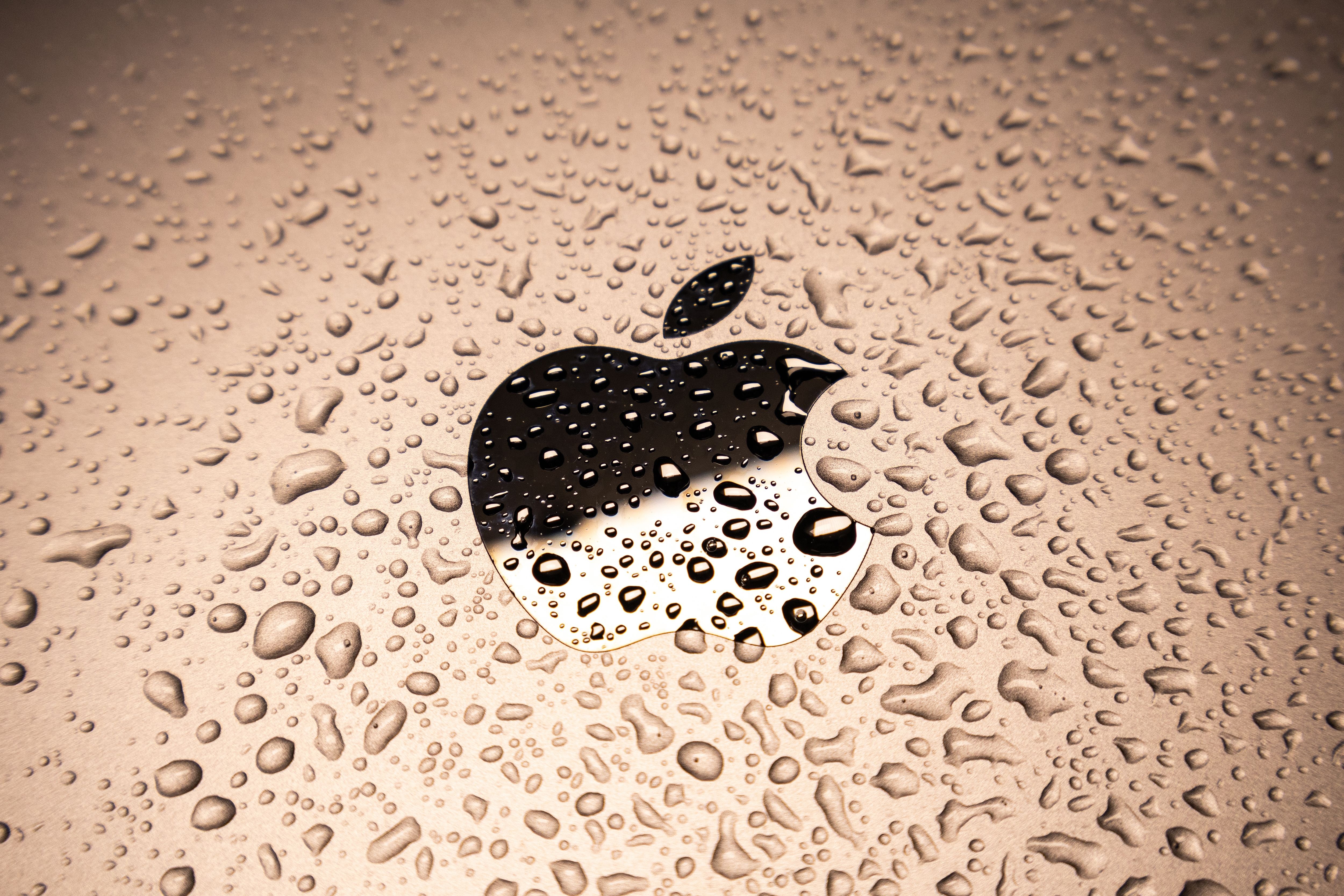
Can I Use My iPhone in the Rain Without Damage?

Can I Use My iPhone in the Rain Without Damage?
Quick Links
- Which iPhones Are Water-Resistant?
- Understanding Splash, Water, and Dust Resistance
- Water Damage Isn’t Covered by Warranty
- Is My iPhone Still Water Resistant After Repairs?
- What Else Can Affect iPhone Water Resistance?
- Want a “Water-Proof” iPhone? Use a Case
- Be Careful Submerging Your iPhone in Water
Key Takeaways
- Recent iPhone models have different IP ratings, including IP68 for the iPhone 15 through to the iPhone XS, though newer models can be submerged for longer.
- Apple warns against intentional water exposure, & water damage isn’t covered by the standard iPhone warranty.
- Be cautious with repairs and use Apple or authorized technicians to maintain water resistance, consider buying a case for frequent water exposure scenarios.
Modern iPhones are water-resistant , but the strength of that protection varies from model to model. Performing maintenance and repairs on your iPhone can compromise this protection. Here’s what you need to know.
Which iPhones Are Water-Resistant?
The iPhone 15, iPhone 14, iPhone 13, and iPhone 12 families of devices (including all Pro, Pro Max, Plus, and mini models) have an IP68 rating. Apple states that these devices can withstand being submerged up to a depth of 6 meters for 30 minutes (that’s almost 20 feet).
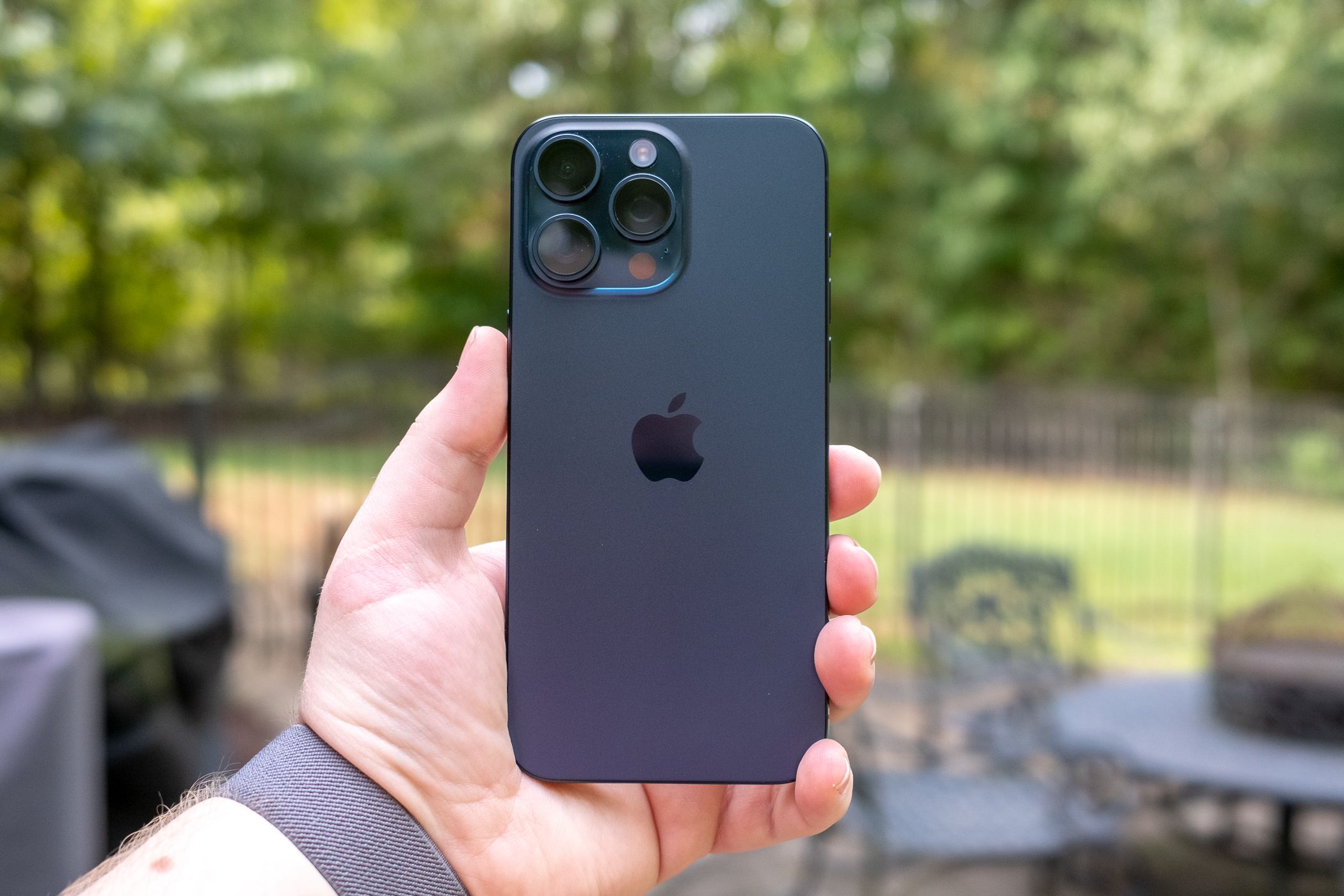
Justin Duino / How-To Geek
The iPhone 11 Pro and 11 Pro Max also have an IP68 rating. According to Apple, these devices can withstand a depth of up to 4 meters for 30 minutes (just over 13 feet).
The iPhone 11 and iPhone XS (including the Max model) also carry an IP68 rating. Apple claims these devices can withstand a depth of 2 meters for up to 30 minutes (about 6 and a half feet).
The iPhone 7, iPhone 8, iPhone X, iPhone XR, iPhone SE (2nd and 3rd generation), and respective Plus models carry an IP67 rating for a depth of 1 meter up to 30 minutes (just over 3 feet).
The iPhone 6s lacks any kind of water or dust-resistant rating but demonstrated a high level of water resistance when it was first released. It’s possible Apple was testing the water-resistant technology that officially made it into the iPhone 7. Earlier models including the original iPhone SE lack any water resistance.
Understanding Splash, Water, and Dust Resistance
Waterproof and water-resistant are not the same thing when it comes to consumer electronics. Many watches are water-resistant, but they can’t handle much more than a splash of water. Most recent iPhone models are water-resistant, but there are conditions attached to that rating, like depth and duration of exposure.
Apple has no way to test the water resistance of every iPhone that comes out of the factory. At the same time, there are reports in the media of phones surviving exposure that goes well beyond the IP6X rating they were assigned in testing.
You’ll also find tales that don’t paint such a rosy picture, particularly on older devices.. Don’t trust the IP rating blindly, your iPhone isn’t guaranteed to be waterproof despite Apple’s best efforts. Apple recommends against intentionally submerging your iPhone, swimming with it, or using it in high-humidity environments like a sauna.
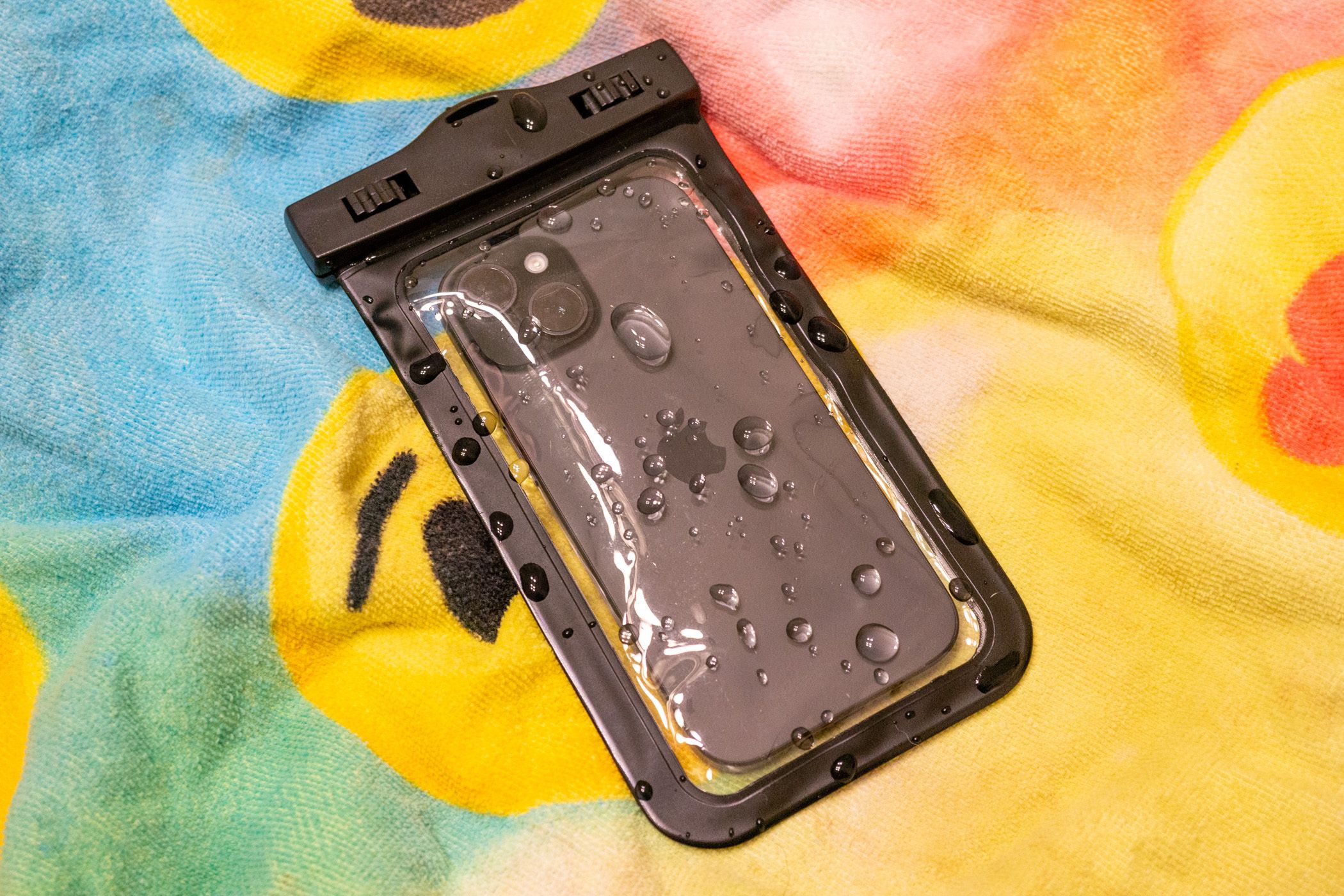
Corbin Davenport / How-To Geek
Every new iPhone since the iPhone 7 has shipped with some form of water and dust resistance, backed up by testing performed in a laboratory. With the arrival of the iPhone 12 family of devices, this water resistance has improved further. This protection is defined by an IP (Ingress Protection) rating.
The first number determines how effective the device is at deterring solids like dust and sand. In this instance 6 is the highest rating, which means that all iPhone models since the iPhone 7 are completely dust-tight. You shouldn’t have any issues with dust or small particles entering the display assembly or chassis.
The second number (7 or 8) determines how effective the device is at preventing liquids from entering. The IP67 rating guarantees a device can be submerged for a depth of 1 meter for up to 30 minutes and remain functional. An IP68 rating means the device can withstand depths beyond 1 meter, though the test duration and precise depth are left up to the manufacturer.
Water Damage Isn’t Covered by Warranty
Despite the IP67 and IP68 ratings, your iPhone warranty doesn’t cover water damage. Apple states that: “Liquid damage is not covered under warranty, but you might have rights under consumer law.” If your iPhone develops a fault as a result of liquid damage, Apple won’t honor the limited one-year warranty.
If you have an AppleCare+ policy with accidental damage coverage , you should be able to pay a fixed fee to have your device replaced regardless of what caused the damage.
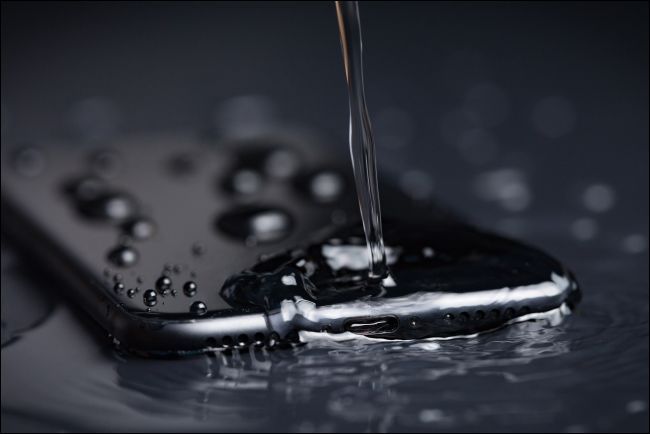
The presence of liquid contact indicators (LCIs) will reveal whether or not your iPhone has come into contact with potentially device-damaging liquid. You can see these indicators inside the SIM tray of any iPhone 5 or later, and in the headphone and charging ports of earlier iPhone and iPod models.
As a result of this, Apple recommends avoiding the following activities:
- Swimming, bathing, or using your iPhone in a sauna or steam room
- Exposing the device to pressurized or high-velocity water (e.g. showering, surfing)
- Cleaning the device with pressurized air
- Intentionally submerging the device for any reason
- Damaging or disassembling the device
- Using the iPhone outside of the suggested temperature or humidity ranges
In other words, Apple explicitly recommends against dunking your iPhone underwater. iPhone water resistance seems to be the last line of defense. While the iPhone has been tested to withstand an IP67 or IP68 water rating, it’s not worth intentionally getting your iPhone wet.
Is My iPhone Still Water Resistant After Repairs?
Apple-approved service shouldn’t affect your iPhone’s water resistance, but third-party repairs could result in your iPhone not being waterproof afterward. On the iFixit forum , Experimac’s Justin Berman notes that the water-resistant rating is tied closely to the presence of adhesive strips located on the display assembly.
When the device is opened up, the water-resistant seal is broken, and the strips will need to be replaced to maintain water resistance. If you have your battery or display replaced by Apple, you should be fine. Repairs are always more expensive when undertaken by Apple, but you generally get what you pay for in the form of first-party replacement parts and qualified technicians.
Where things get tricky is when you take your device to a third-party technician without an Apple accreditation. These businesses offer competitive prices for common smartphone casualties, like broken screens and failing batteries.
If you take your iPhone to one of these unauthorized technicians, be sure to ask whether the adhesive strips on the display assembly were properly replaced. You’re going to have to take the technician at their word. The only way to find out for sure is to risk your phone becoming water-damaged. Wherever possible, take it to an Apple Store or Apple-approved technician.
What Else Can Affect iPhone Water Resistance?
Damage to your iPhone can affect its water resistance. If your phone takes a hard knock, you might damage the adhesive seal that keeps water and dust out. This is more likely to happen if you don’t use a case. Any kind of physical dent or damage that might cause movement of the components inside the iPhone increases the chances of damage.
Cleaning your phone with pressurized air might also jeopardize the seal. Apple has always recommended against cleaning your iPhone with such products. Instead, you should use cotton swabs, a soft cloth, and plenty of elbow grease. You can clean out the charging port if your iPhone isn’t charging properly , but don’t expose it to liquids in order to do so.
Lastly, plain old bad luck can also affect how waterproof your iPhone is. Apple doesn’t support warranty claims against water damage for a reason. Even the latest and greatest iPhone models can come straight from the factory with defects, and waterproofing is no exception.
Even if you have AppleCare+, you will still have to pay the flat fee to have your IP68-rated iPhone replaced if it becomes water-damaged.
Want a “Water-Proof” iPhone? Use a Case
The water resistance built into every iPhone model is not to be relied on for any serious water exposure. If there’s a high chance your iPhone will get wet, then you might want to invest in a waterproof case.
Plenty of companies specialize in creating waterproof cases. It’s a good idea to go with a brand that you trust since you’re going to be placing a lot of faith in them to keep your device safe.
If these cases fail, the companies responsible will not replace your device. You’re still taking a chance when you use these products, so be aware of the risks.
CaliCase create waterproof pouches for iPhone and other smartphones. Not only do these cases float, they can withstand up to 100 feet (30 meters) of water pressure, plus you can snap photos and use your device while it’s in the case.
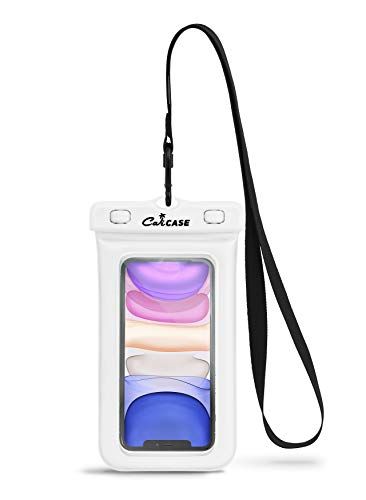
CaliCase Waterproof Floating Phone Pouch
Keep most smartphones dry and sand-free with this floating universal cover from CaliCase.
OtterBox is another respected brand in the rugged case market. The Frē series now supports MagSafe and allows you to take your iPhone to depths of up to 2 meters (6.6ft) for an hour, with built-in drop protection and an included lanyard.
Be Careful Submerging Your iPhone in Water
Despite the progress Apple has made in safeguarding the iPhone from water damage, you should still take care when using your iPhone around water.
If you want to routinely use your iPhone in wet environments like monsoons or when kayaking, we recommend investing in a case that’s built for the job. Even better, buy one that floats so you can easily find your iPhone if you happen to drop it.
Also read:
- [New] 2024 Approved Tips for Sharing Twitter Videos on Instagram
- [New] Capture & Record Like a Pro Phones Excelling in Image Stability Features
- [New] In 2024, Crafting a Striking Online Presence with Perfect YT Dimensions
- [Updated] From Device Footage to YouTube Shorts - Your Streamlined Approach for 2024
- [Updated] Optimal Data Buffering for Sony A7S II
- Coming Soon: The Apple Vision Pro – Integrated with Thousands of iPad and iPhone Apps!
- Counterfeit Copycat of LastPass Unveiled in iOS App Catalog
- Covert Techniques for Intercepting iMessages without Sending Read Alerts
- Disappearance of the Original App Store Game Emulator: A Detailed Insight
- Easily Access Music Recognition with Shazam on Your iPhone's Control Panel
- Effective Methods for Assessing the Condition of Your iPad's Battery
- Effective Ways to Remotely Time Your WhatsApp Messages During Significant Events
- In 2024, How To Get the Apple ID Verification Code From Apple iPhone 6 Plus in the Best Ways
- In 2024, How to Unlock a Network Locked Samsung Galaxy F34 5G Phone?
- In 2024, Symphony Storage Download & Critique Melodies
- Tom's Computer Tech: Expert Gadget Reviews and Guides
- Title: Can I Use My iPhone in the Rain Without Damage?
- Author: Daniel
- Created at : 2025-02-12 22:39:54
- Updated at : 2025-02-19 18:22:13
- Link: https://os-tips.techidaily.com/can-i-use-my-iphone-in-the-rain-without-damage/
- License: This work is licensed under CC BY-NC-SA 4.0.